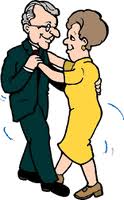Music Therapy For Dementia and Alzheimer's
Music therapy products work synergistically for patients with Alzheimer's, dementia and memory loss. We observe that music relieves the stress, anxiety and depression of the patient as well as reducing their agitation. Research has confirmed the benefits of providing people who have dementia with music they remember. The restorative effect of music therapy vastly improves the quality of life at home, mental well-being, and promotes independent living rather than relying on institutional resources.
Caregivers use music therapy as one of their tools to comfort and care for those with dementia. At The Alzheimer's Store, we are continually adding the best Alzheimer's products which will help the patient. Our Music Player is a simple to use, old fashioned looking in style, music box. It is capable of downloading songs from the internet, including verses from the Bible. At facilities, professional caregivers working with music for Alzheimer's patients love our selection of CDs as they are created by music therapy professionals. We also offer a Simple Music Player with One Button Radio.

Moving to the music is a great aerobic activity and using music as therapy is known to increase brain and motor skills. Therapists who add exercise and dance movements to music say it becomes a favorite activity. Tapping a foot, humming a song or dancing to the rhythm of a melody are all good examples of how music can affect one's mood.
Music therapy for dementia patients is very effective when combined with faith. Some of our earliest memories are attending religious based ceremonies which were combined with music.
As caregivers, we are always looking for ways to connect with the one being cared for. Music is one of those ways that can combine motor skills, brain activity, memories and verbalization, all in one.
